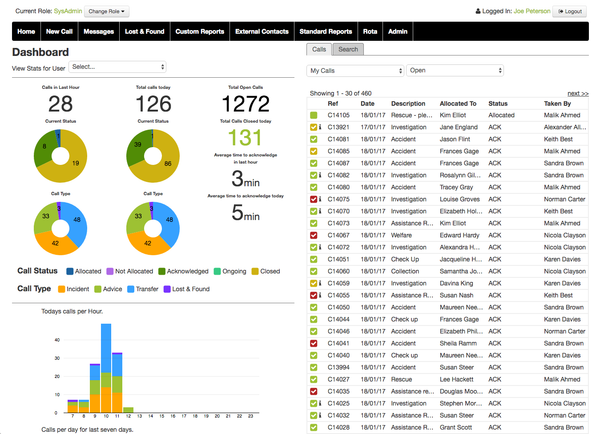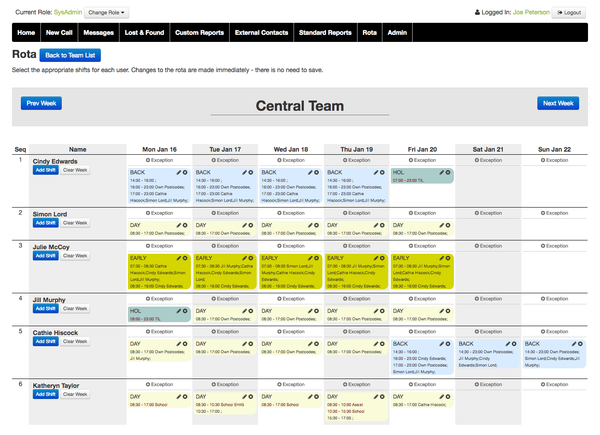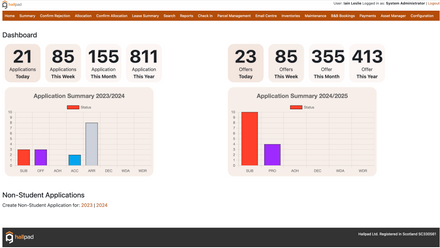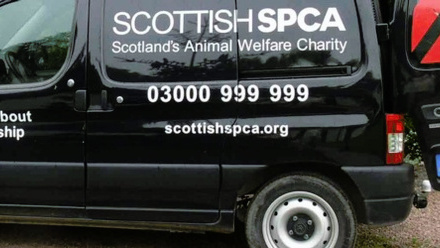Scottish SPCA Helpline - bespoke helpdesk CRM
Many calls are routine, but some are urgent and/or highly sensitive in nature. And of course, all of these staff rely on the system for their job and as they are a major part of the charity's public face any significant system downtime is unacceptable.
All this and more was successfully developed and the switch to the new system was achieved overnight with no downtime.
This shows our experience of:
- developing a major, business-critical application for a well-known organisation which has a potentially huge impact on its public profile
- listening to and working with all types of end users from animal rescue officers and call-centre operators to the CEO
- working with complex data sets and developing robust solutions to both organise and manage the data and interact with other systems
- working with third-party APIs (in this case for maps and communications)
- developing complete test suites to ensure requirements are met and system integrity over the longer term









